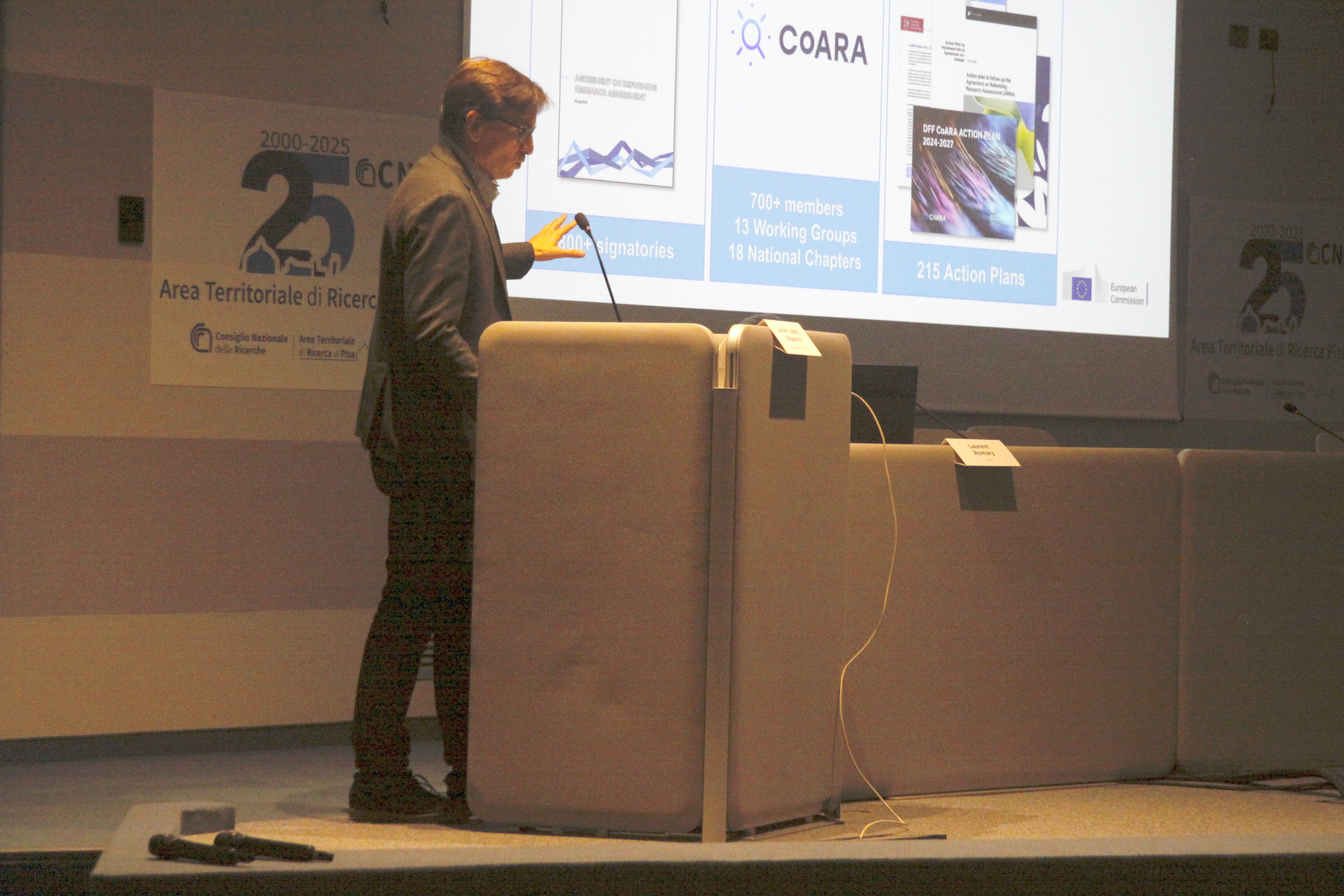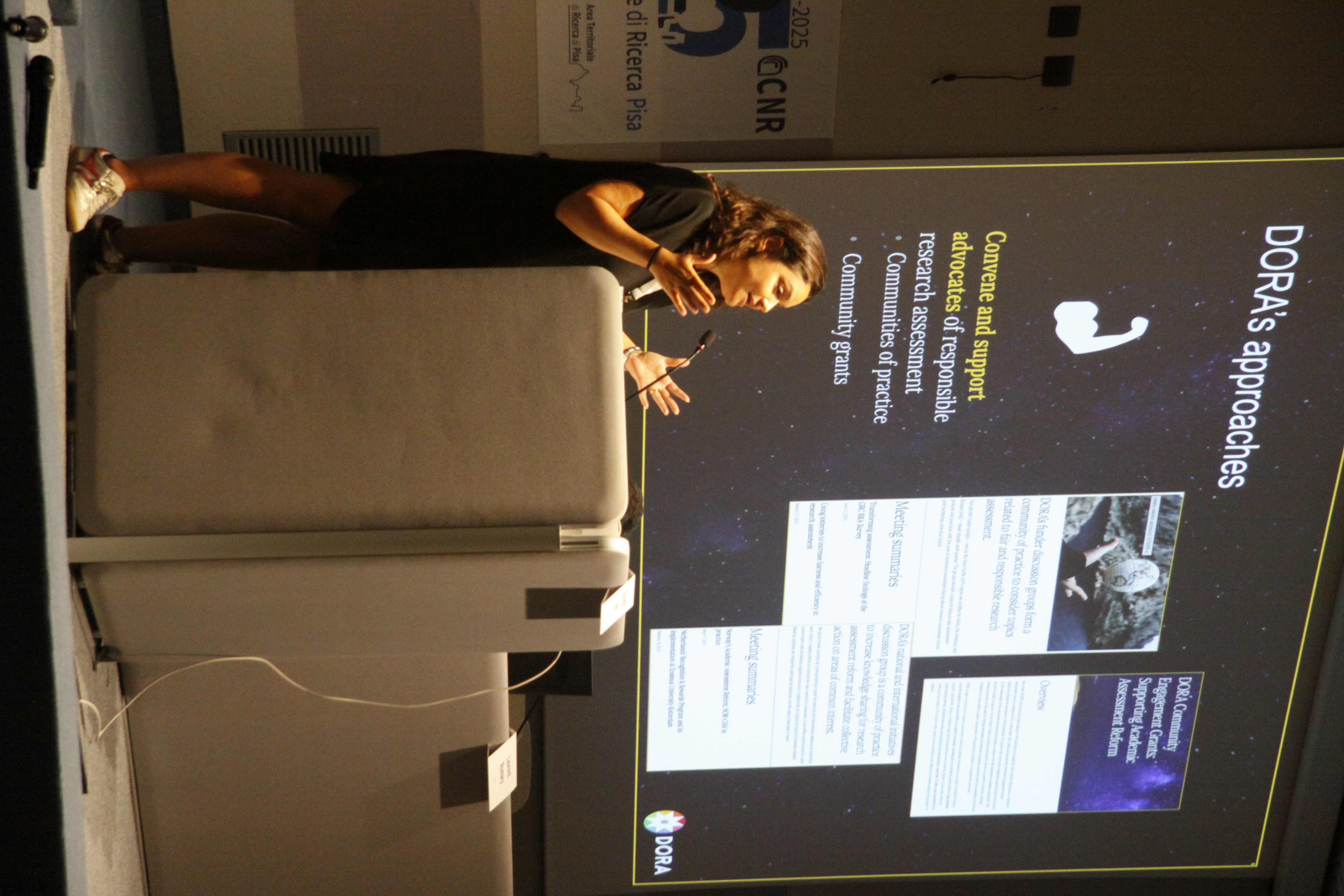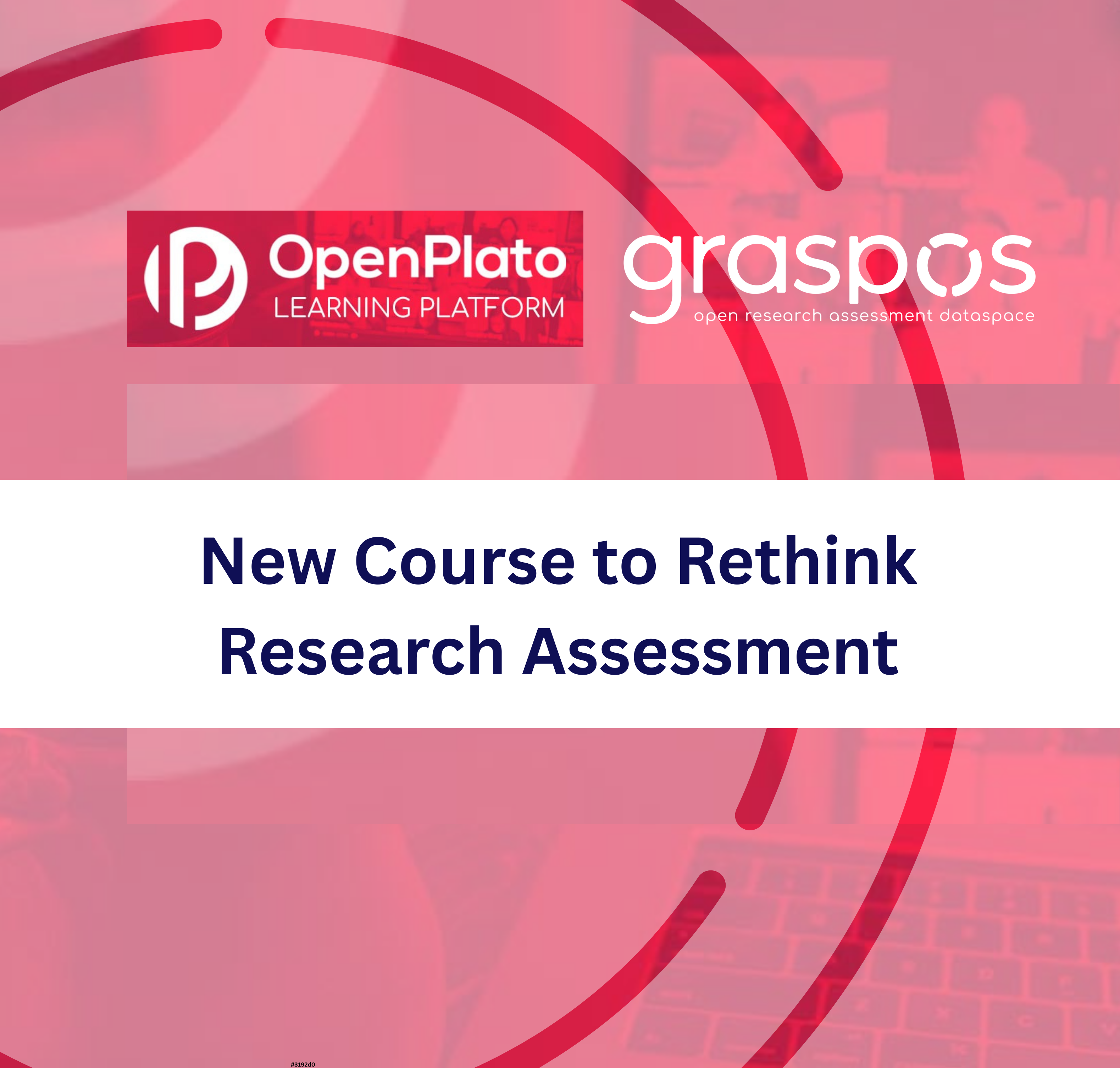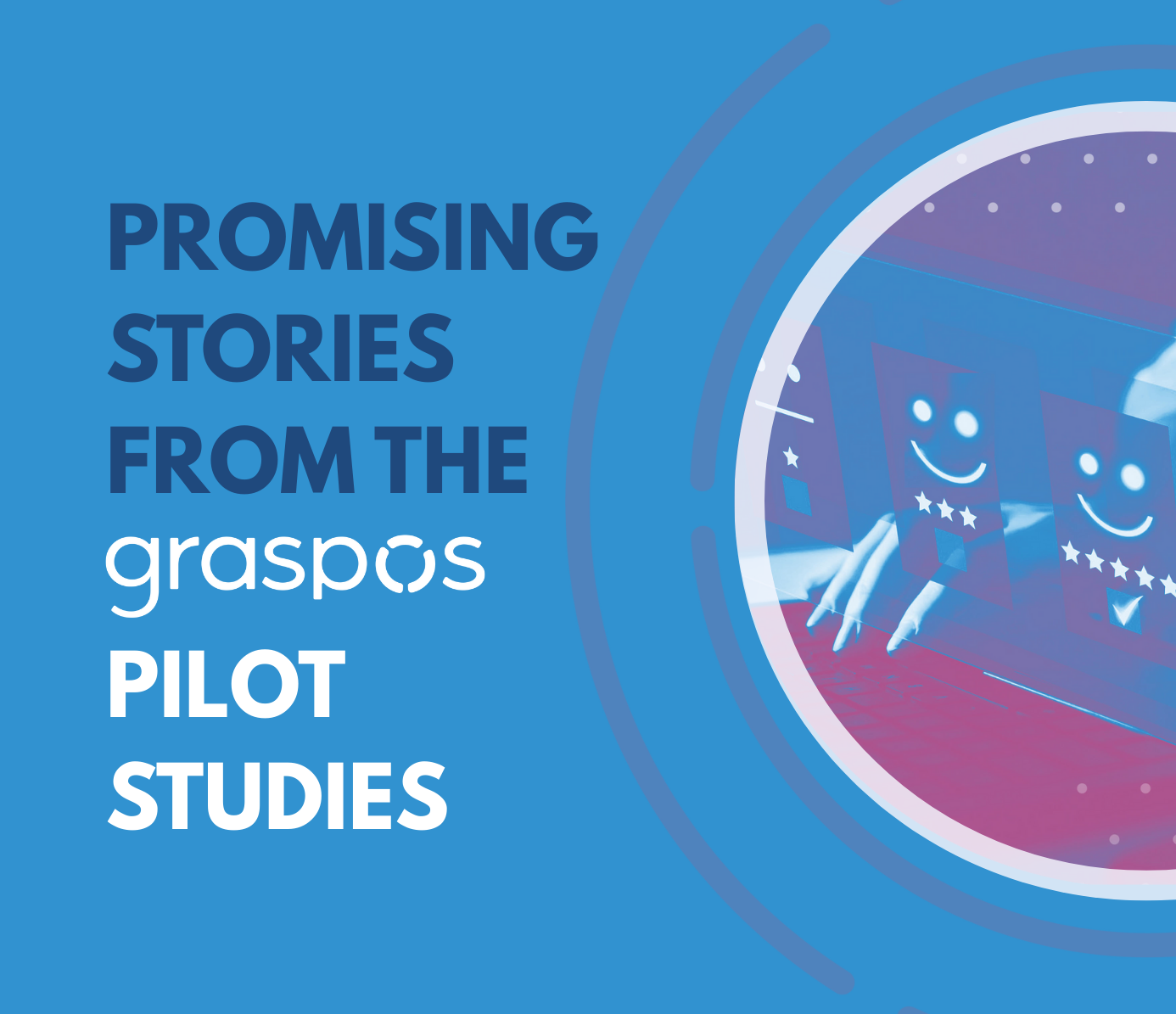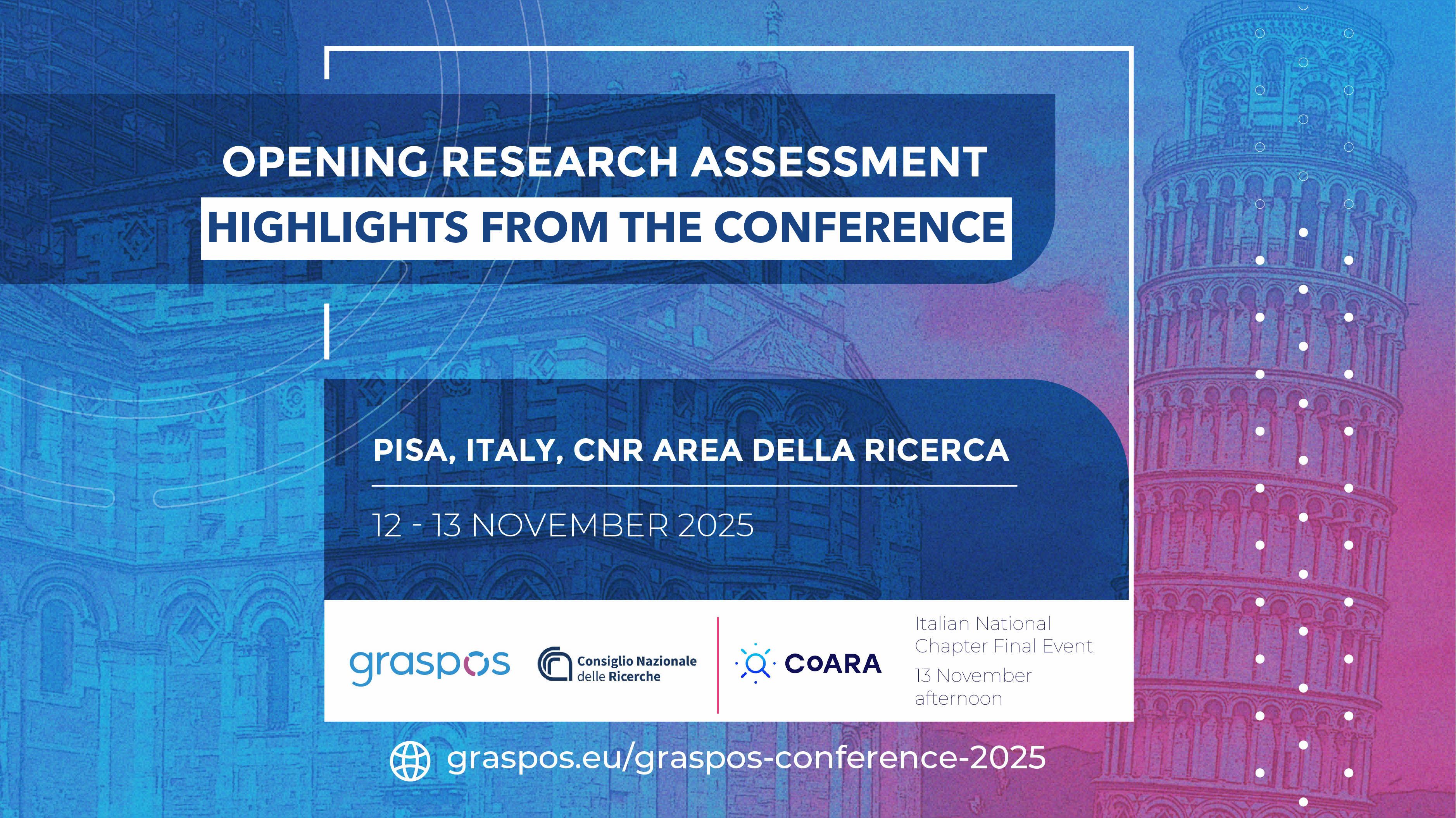Highlights from the GraspOS Final Conference: Opening Research Assessment
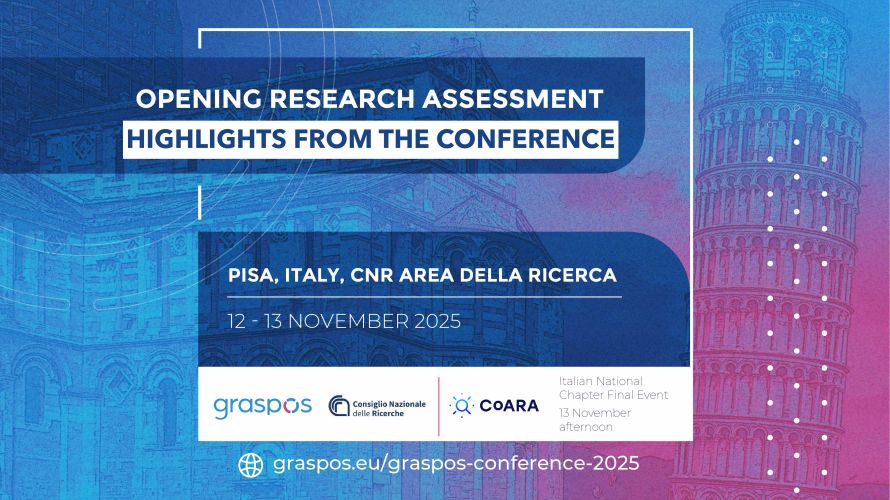
The GraspOS Final Conference, held on November 12-13, 2025 in Pisa, Italy, focused on the theme of Opening Research Assessment. The conference centered on transforming research assessment into a system that is responsible, and fully aligned with the principles of Open Science.
Since the beginning of the project in January 2023, the core mission of the Horizon Europe project GraspOS has been to support emerging policy reforms and pave the way for a Responsible Research Assessment (RRA) system that integrates Open Science practices. The project’s main technical output is an open, federated infrastructure, which aggregates open resources intended to foster the implementation of relevant policy reforms.
Discussions over the two days of the Conference featured presentations of GraspOS results, invited talks, and expert panels covering three critical areas, namely: open infrastructures for RRA, transparency and inclusivity of assessment processes, and the recognition of contributions to Open Science. In this news piece, we highlight the key insights shared during the event.
Foundational Frameworks and Policy Alignment
Open Science has emerged as a transformative paradigm for contemporary research, promoting openness, collaboration, and social responsibility across the entire knowledge cycle. The movement for assessment reform is driven by several key factors, including open research, equity, diversity and inclusion, research careers, research culture, and research integrity.
Among the major international initiatives represented were the Coalition for Advancing Research Assessment (CoARA) and the San Francisco Declaration on Research Assessment (DORA). DORA aims to advance robust approaches to improve assessment across all scholarly disciplines worldwide, while CoARA, with over 800 signatories as of early 2025, is a major instrument for the future of research assessment. The European Commission supports these goals through the ERA Policy Agenda 2025-2027 and funding calls, focusing on institutional changes to improve assessment and raising awareness of reforms.
A central theme was the transparency of research assessment processes. RRA principles require that organisations be explicit about criteria used in decisions (DORA), openly communicate methods and limitations (Metric Tide), and allow those evaluated to verify data and analysis (Leiden Manifesto). The Barcelona Declaration underscores the need to make research information openly available through open scholarly infrastructures to advance RRA.
The GraspOS project uses the SCOPE Framework for Research Evaluation (Start with what you value, Context, Options, Probe, Evaluate), which was extended into the SCOPE+i Framework by integrating the Infrastructure. The key aims of the SCOPE+i Framework are to ensure the transparency of assessment processes and the inclusivity of assessment actors.
Infrastructure, Tools and Services for Assessment
The EOSC-integrated infrastructure developed by GraspOS was presented and demonstrated during the event. This infrastructure functions as a comprehensive resource catalogue, providing a centralised point for discovering RRA resources of all types, including data, tools, services, templates, and guidelines. At present, all listed resources are managed by partners of the GraspOS project. However, by the end of 2025, a clear resource inclusion policy, that will allow anyone to submit their own resources, will be released. This will transform the GraspOS infrastructure into a truly open platform and establish it as the one-stop destination and key reference point for anyone seeking RRA-related services.
The infrastructure also implements interoperability standards developed within the project to address the need for consistent and standardised metadata sharing. Notably, it adopts the RA-SKG standard for exchanging metadata related to research assessment, as well as the GraspOS Resource Metadata Schema, a tailored schema designed to enhance the discoverability of RRA resources.
Two key services developed within this infrastructure are digital portfolios for researchers and assessment protocols:
- Openness Profile: A self-curated digital portfolio designed to make a researcher's contributions to Open Science visible as a distinct entity. The profile allows for flexible input of various content types, including those with persistent identifiers (like Open Software IDs) and a dedicated narrative field to contextualise contributions.
- Assessment Protocol Portfolio (APP): A digital portfolio designed for use during a full assessment event which functions as a collaborative and registered protocol that ensures the persistent registration and preservation of finalised assessments. By promoting openness and comparability, the APP helps the community learn across different assessments. These services are technically underpinned by the Research Activity Identifier (RAiD).
Alternative evaluation approaches were also presented:
- Hybrid Indicator Model: A semi-quantitative model, demonstrated by the University of Eastern Finland, which aims to make societal interactions and research impact visible. It measures the "Level of effort" presumed to generate societal impact, based on recorded activities such as consultancy, media visibility, organising conferences, and teaching merits, offering an alternative to traditional citation-based indicators.
- Enhanced Researcher Profiles: Services like OpenAIRE's MyResearchFolio, ATHENA’s BIP! Scholar, and UEFISCDI's enhanced profile concept aim to move beyond traditional metrics by capturing a wider diversity of contributions including datasets, software, policy contributions, and social engagement, and by integrating qualitative, narrative elements to put research contributions in context.
Pilot Project Insights and Implementation Challenges
Nine Pilots contributed to the co-development of the SCOPE+i Framework, providing critical insights into the domain-specific challenges of RRA implementation, among which:
- Social Sciences and Humanities (SSH) Pilot: This pilot addressed specific SSH challenges such as linguistic inequities, inadequate coverage in major indexes, and the difficulty of valuing knowledge embedded in local contexts. The pilot’s co-creation journey, based on the SCOPE Framework, resulted in an adapted Narrative CV template, though discussions often revealed new questions rather than definitive conclusions, reinforcing that community ownership is key to reform.
- Computer Science (CS) Pilot: This pilot focused on the specific scholarly practices in informatics, emphasising the central role of software and conferences. The roadmap developed includes providing more visibility to software as a research production, testing tools like SoftCite/Software-Viz to link publications and software mentions, and developing profile components specifically tailored for CS outputs like software packages and ML models.
- National Research Council (CNR) Pilot (Italy): This pilot analysed the criteria for career progression at CNR against CoARA commitments. Findings indicated that most internal criteria still reflected a traditional research culture and favored structural properties that lead to automatic assessment, potentially being detrimental to Open Science practices. A significant practical lesson was the tension between centralised and decentralised infrastructures, and the substantial effort required to retrieve and reconstruct contributions due to the lack of structured metadata representation for many qualifications.
- Faculty of Chemistry Pilot (Serbia): This pilot developed an evaluation mechanism to promote Open Science practices by implementing a badge-based recognition and reward system integrated into the Authors–Projects–Publications tool, tracking openness at multiple levels (researcher, department, project, and output).
Conclusion
We would like to thank all the participants of the GraspOS Final Conference who contributed to making this event a success. These two days showcased not only strong engagement and broad participation from all stakeholders but also highlighted that, despite significant progress in establishing foundational frameworks and developing essential open infrastructures, the transition to a Responsible Research Assessment system requires sustained commitment and active collaboration from all involved parties. The collective efforts which were showcased confirm the growing landscape for positive change within the European Research Area, emphasising the need for continued alignment of policies, increased awareness, and joint advancement of RRA objectives across diverse research communities.
We’re pleased to share some highlights from the event in these photos (all images are courtesy of Andrea Mannocci). The slides from the presentations are now available in the Zenodo Community: Opening Research Assessment: GraspOS Final Conference Open Collection
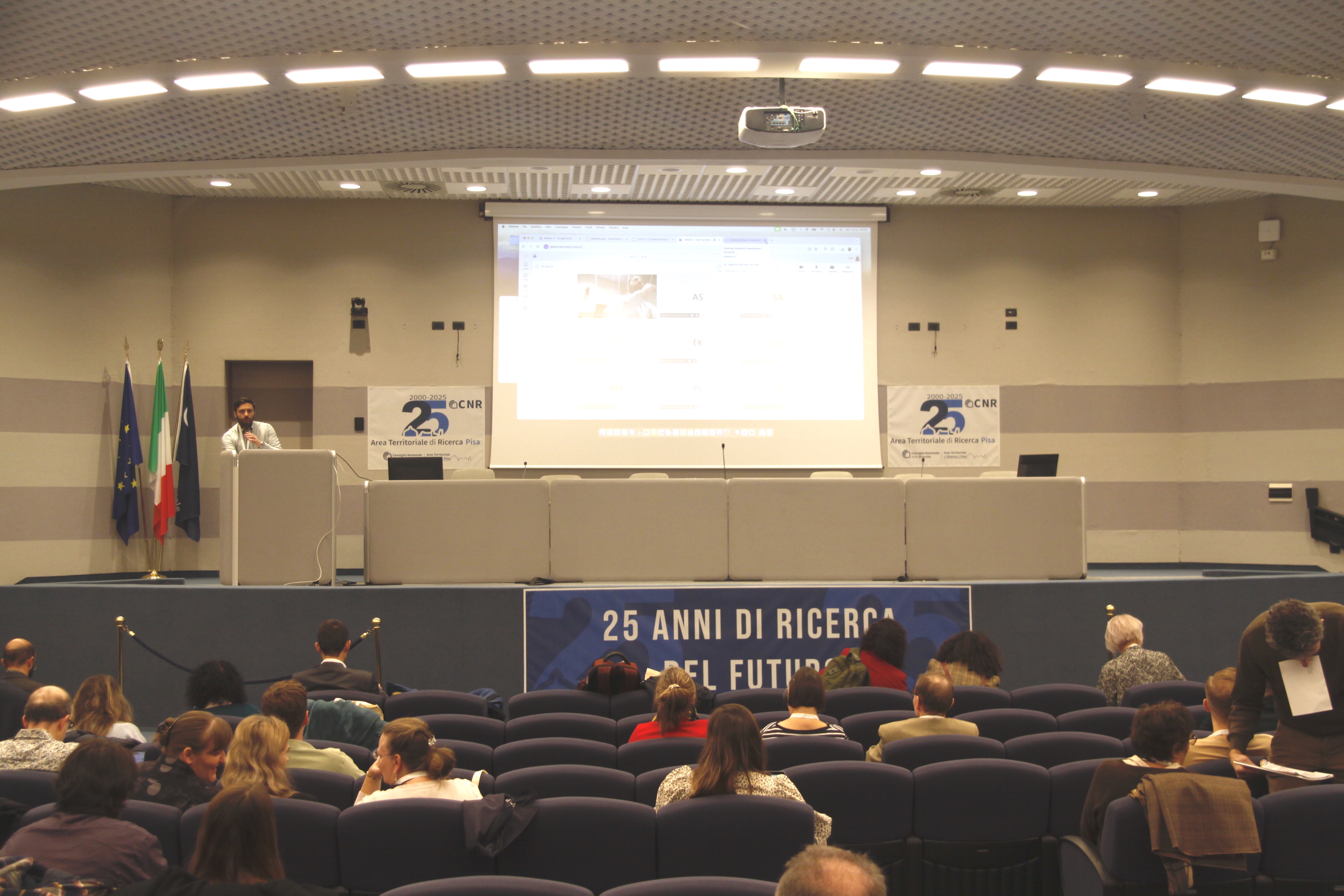 |
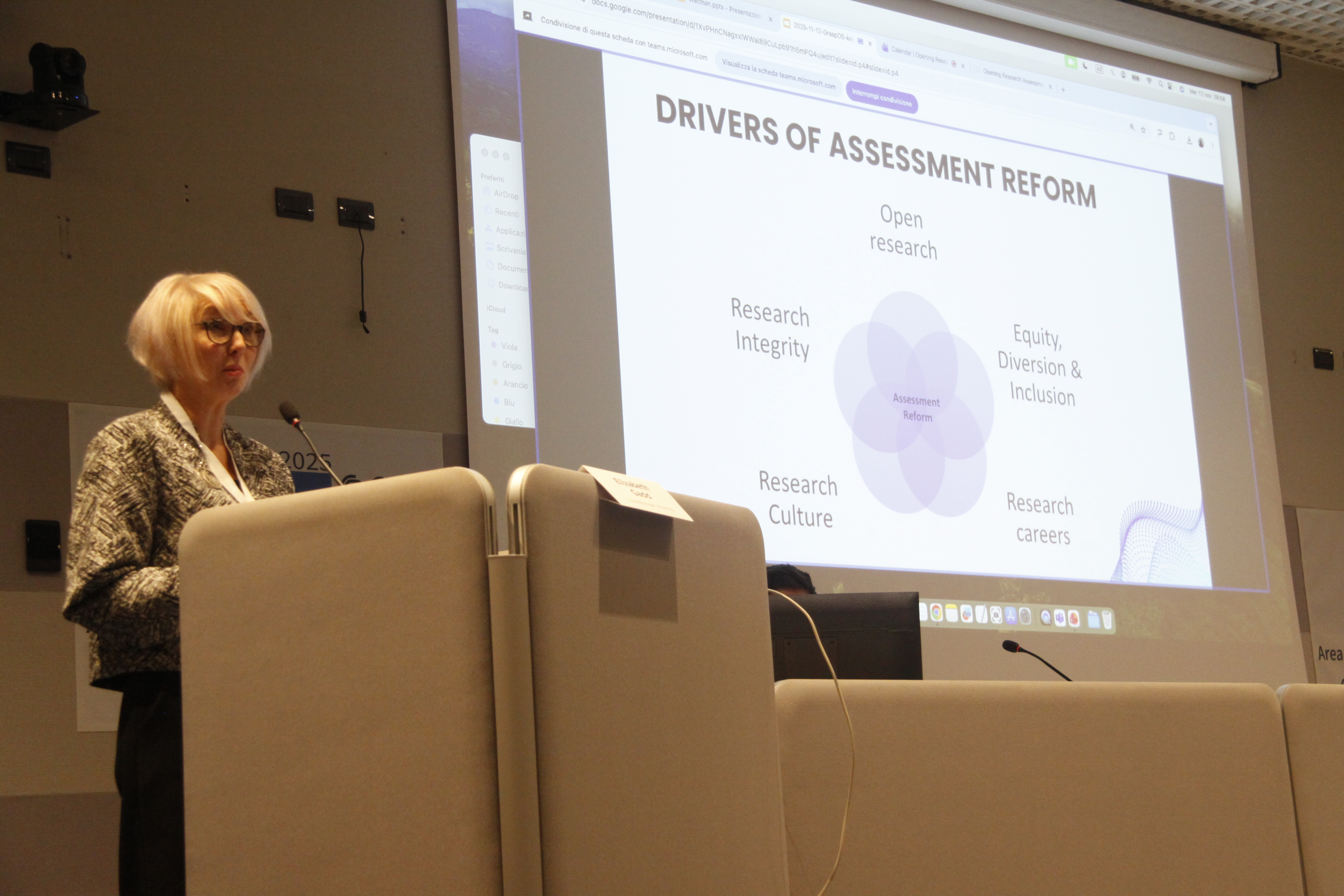 |
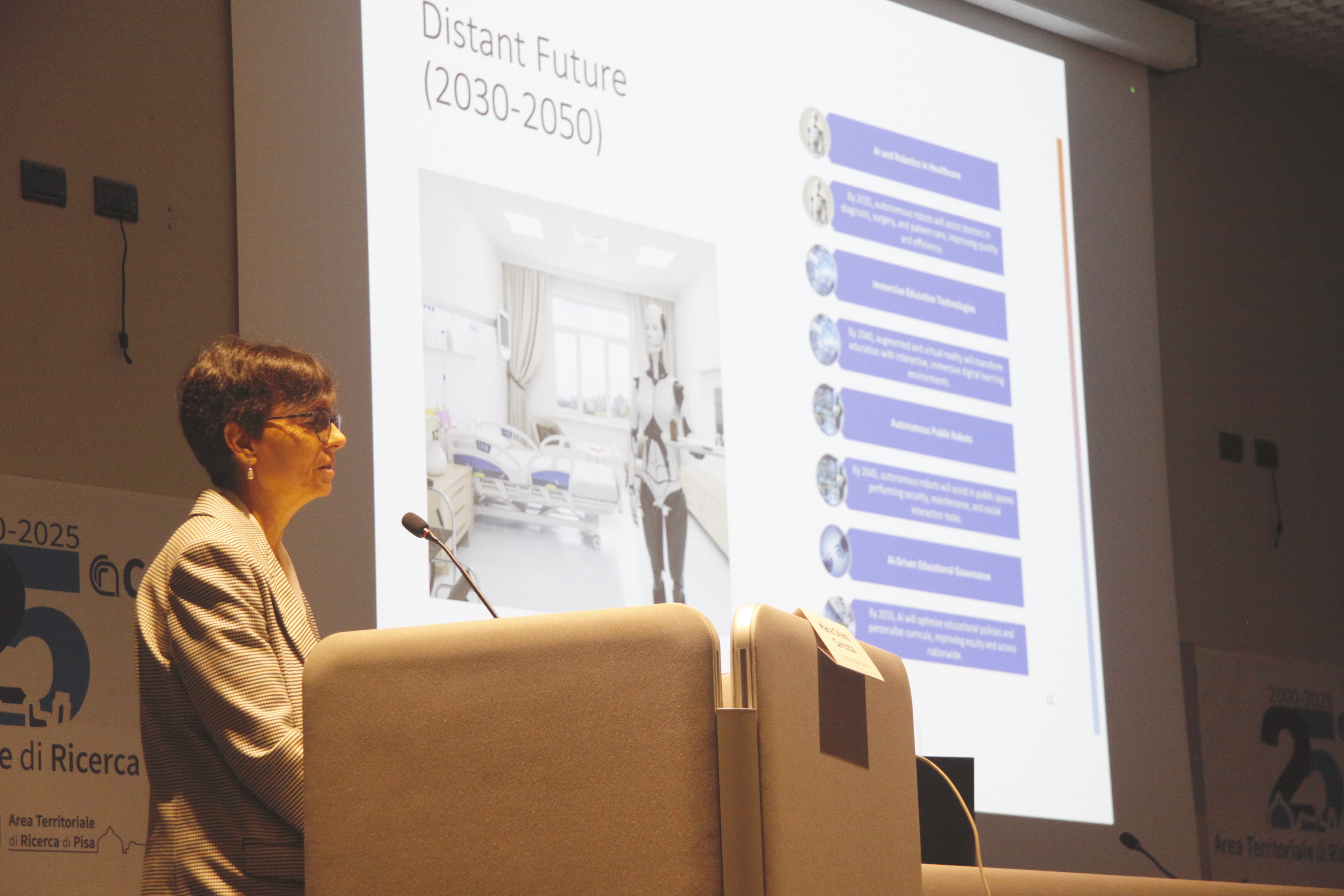 |
|
|
|
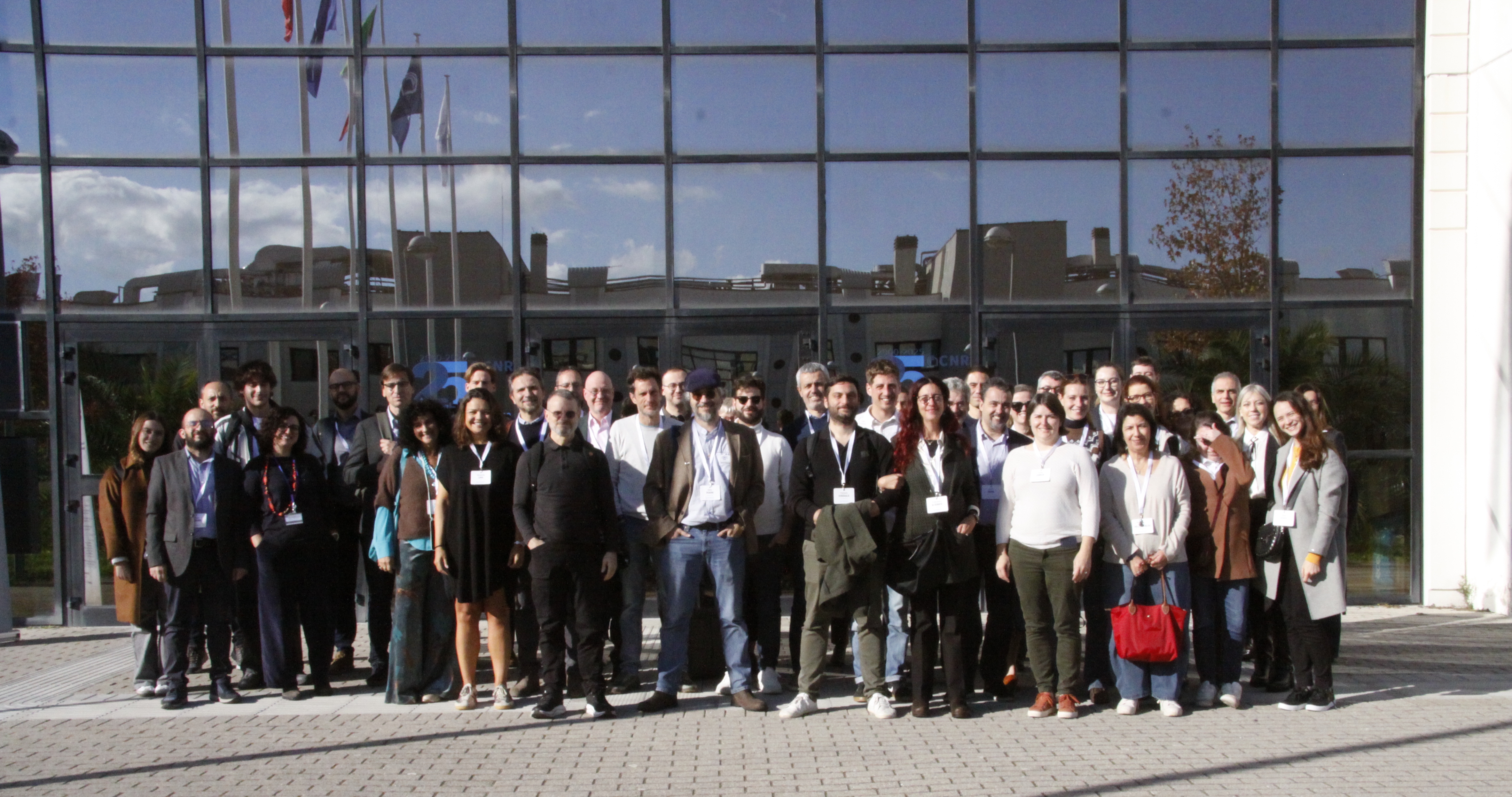 |

